I binge Bad Sisters while Chris is traveling for work. Ten episodes on a weeklong Apple TV trial. It becomes my nightly activity after dinner, with a dog tucked at my hip, a cup of peppermint tea, maybe a cookie, and the company of the Garvey sisters.
I text the friends (multiple) who recommended it to me: “I love Bibi’s hair, and Eva’s clothes, and the music, and the cold water swimming.”
The actual conspiracy to kill John Paul and the fraud investigation that follows his death certainly pull the story along, but they are not the draw for me. It’s the sisters: the fantasy of living close enough to swim in the sea together, for the youngest to raid the eldest’s fridge when she needs a snack (or some tequila), the ordinariness of the cousins playing together while the sisters keep council at a kitchen table.
I am particularly drawn to Eva, played by the show’s creator Sharon Horgan. I’ve never seen Horgan in anything before, but at times I am watching the show just for her. She is the eldest, as I am, and has inherited the family home with its solarium overlooking a horizon line of sea, an unfussy yard with a fire pit (good for burning evidence) and tall grasses always blowing in the wind. She works in finance at an architecture firm so her job actually matches her wardrobe and material comfort (unusual in a TV show).
So I watch. As the story unfolds I think it is her humor and style that I am hungrily drawn to. Maybe I have a crush on her.
After I finish, I keep recommending the show to anyone who will listen. Some, those who already love murder mysteries, need no persuading. One of my own sisters says, “Yikes, sounds morbid.”
The premise is certainly dark. Bad Sisters may feel like a comedy, but underneath it is a tale about a woman in a marriage so manipulative that her sisters think it is going to destroy her.
That detail aside, I am the target audience for everything else about this show. I have three sisters and am openly obsessed with cold water swimming (yes, I have a dry robe too). I listen to Brandi Carlile and First Aid Kit. I love detective shows that feature overhead shots of lush coastlines. I would definitely be friends with the Garvey sisters.
It’s not until I am listening to an interview with Sharon Horgan that I realize that there is more to my obsession. Eva has built her life as an older sister, as the one who has everyone over on holidays, an approachable aunt whose niece asks for help getting her first bra. Her home is the place where the sisters go to talk after their children are asleep. She has warmth, and strength, and a nurturing presence. She is also a childless woman.
Eva’s infertility is something essential about her character. There’s a cruel reference to it early on, and we learn that her last serious relationship ended because her partner wanted children, she couldn’t have them, and she says “I didn’t deal very well with that.”
Since my own pregnancy losses, one thing that has ambushed me over and over is the expected script of motherhood. I am finishing out my thirties and these were supposed to be the years of early parenthood. It is so deeply assumed by me and my peers that this is what these years are for. Without children, I’ve cast about for how to define this time.
These have been good years, in many ways, for Chris and me. We are traversing this season together. We’ve weathered our losses. We’ve cultivated friendships and good work. We have the dogs—Penny and Lance—smart, consuming, time-intensive, working dogs. We love them way too much. But none of this amounts to parenthood. At social events, where other people’s children are running about, we are still asked, “which one is yours?”
There is a vulnerability in Eva’s life, that emerges as the story unfolds. She goes up for a promotion at work, tries to find new love, hosts Sunday lunch for her family, falls asleep watching TV on her sofa after too much wine. And there it is: an undercurrent of melancholy that she mostly holds at bay, and which doesn’t define her, but that is present nonetheless. (We’ll yet again set aside the fact that she and her sisters are contemplating an extreme act of violence.)
And yet, in the end, I am watching the show for Eva’s life. It’s a life that contains fierce love for her sisters and their families, an unapologetically full table, and moments of solitude. Her life is a good one. And it doesn’t require being a parent.
So maybe, when I am obsessing about how much color Eva wears or her perfectly cut pantsuits or the shade of her highlights, maybe I am seeing a portrait of the kind of adult I can be in the coming decade—minus the murder—which is not otherwise scripted for me.

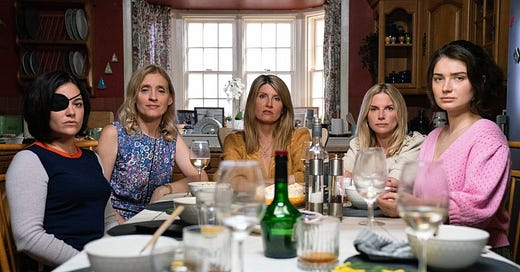



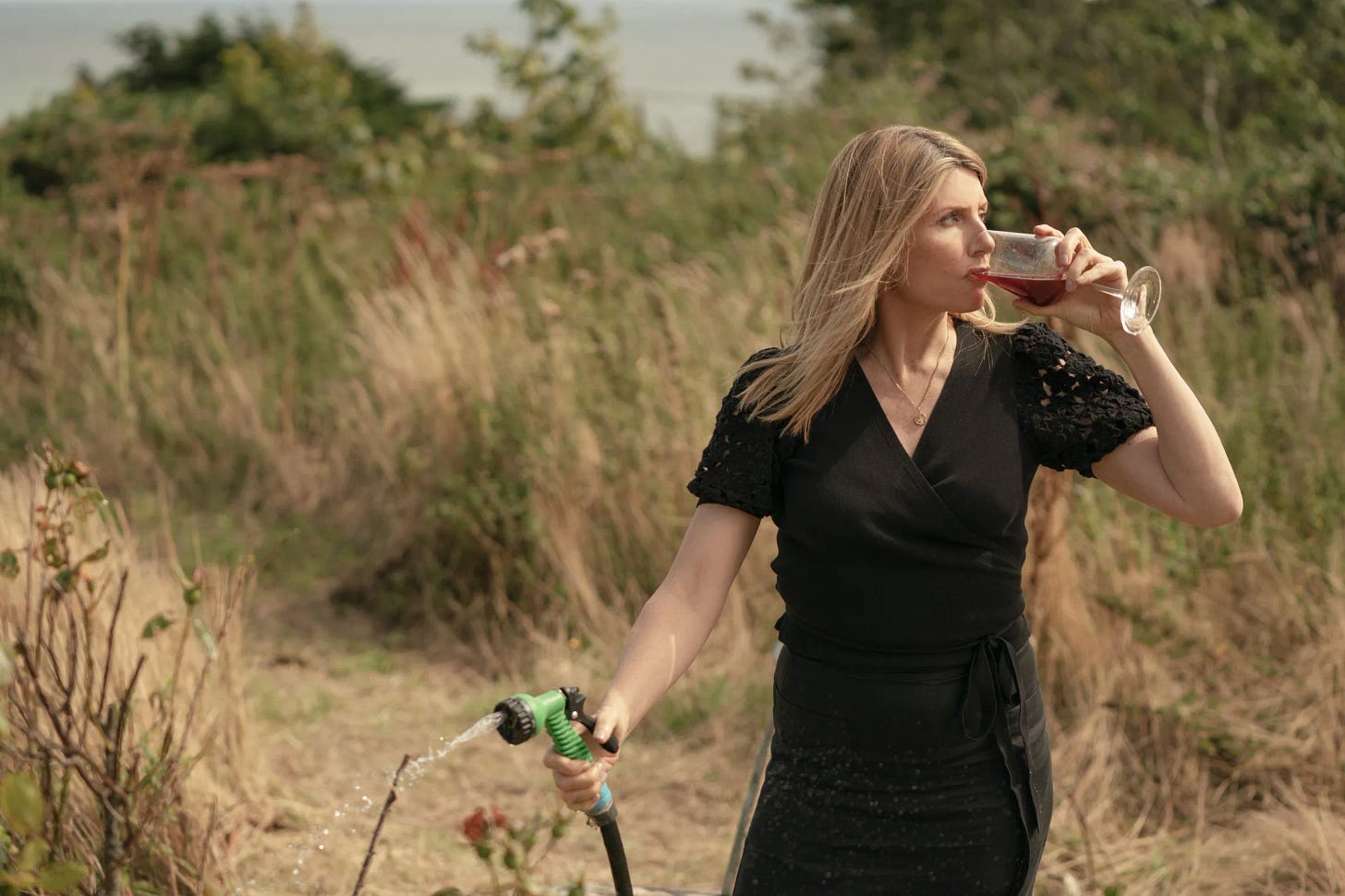

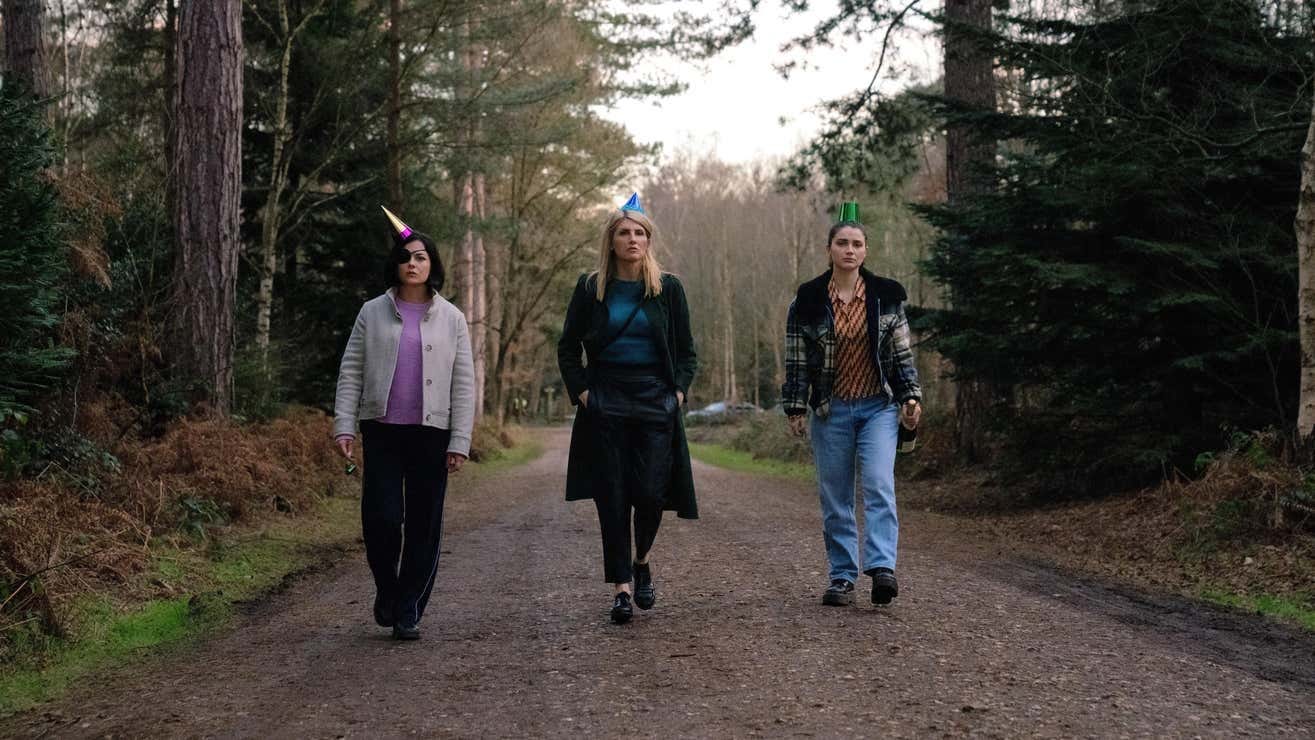
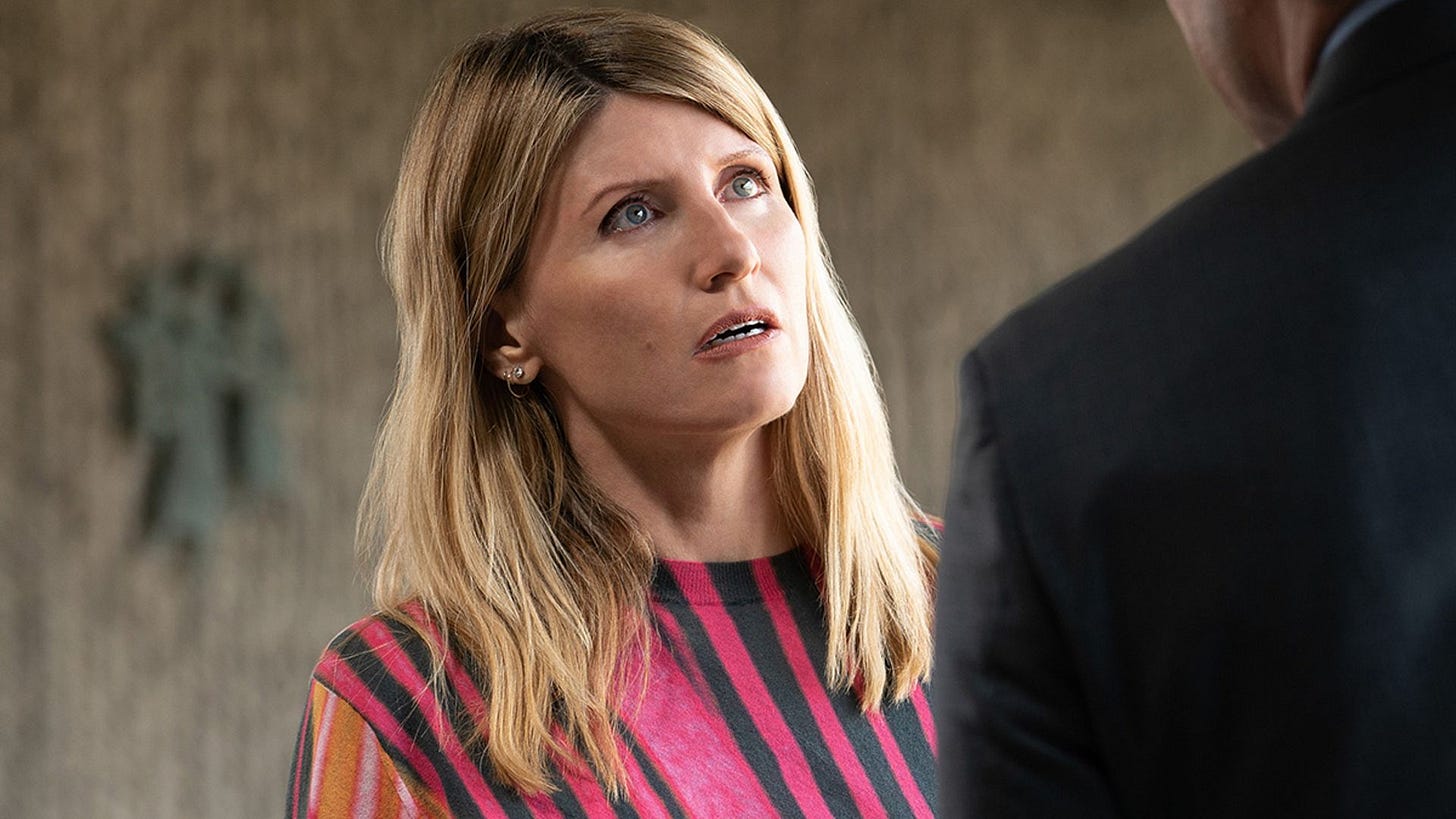
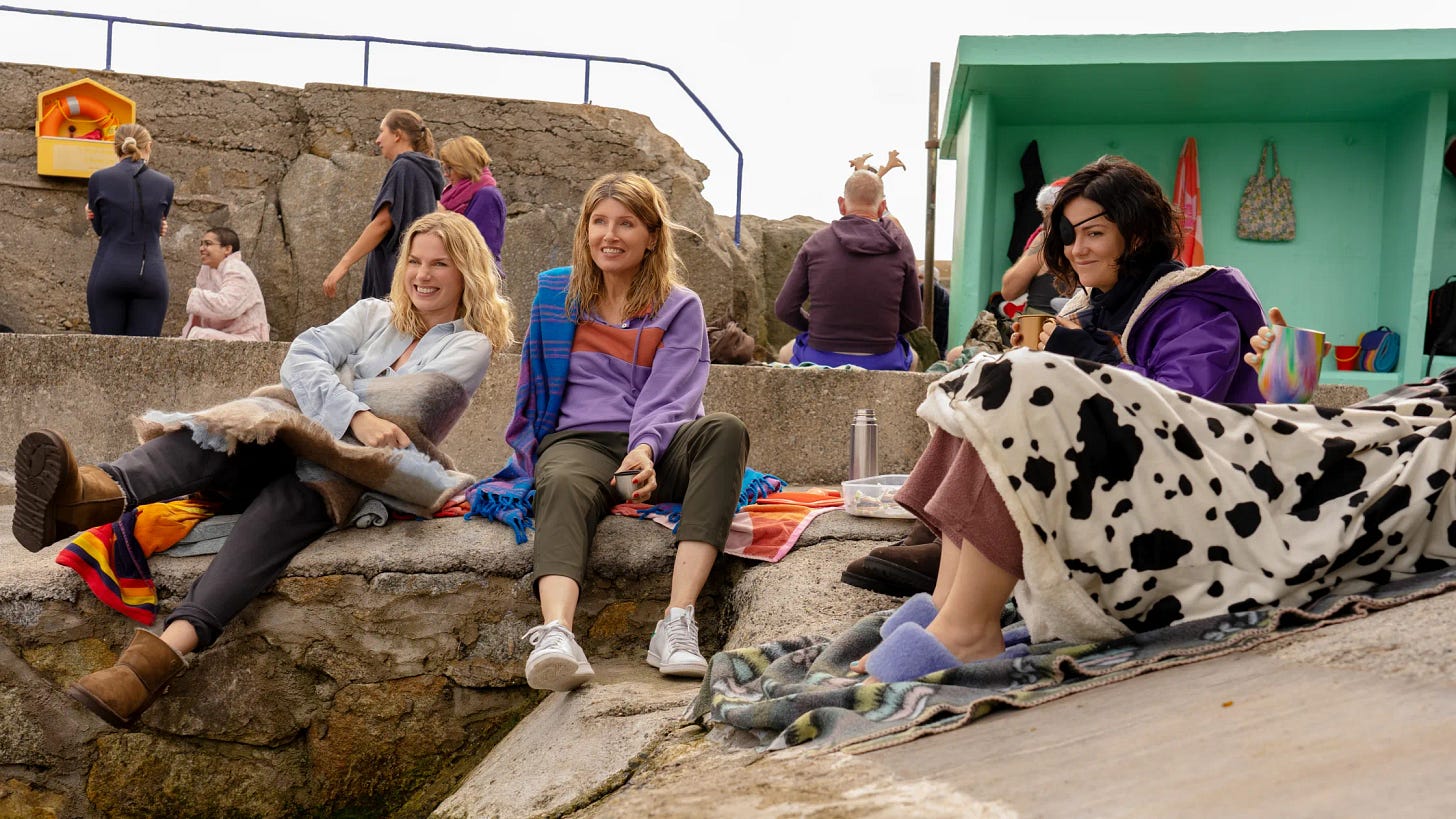
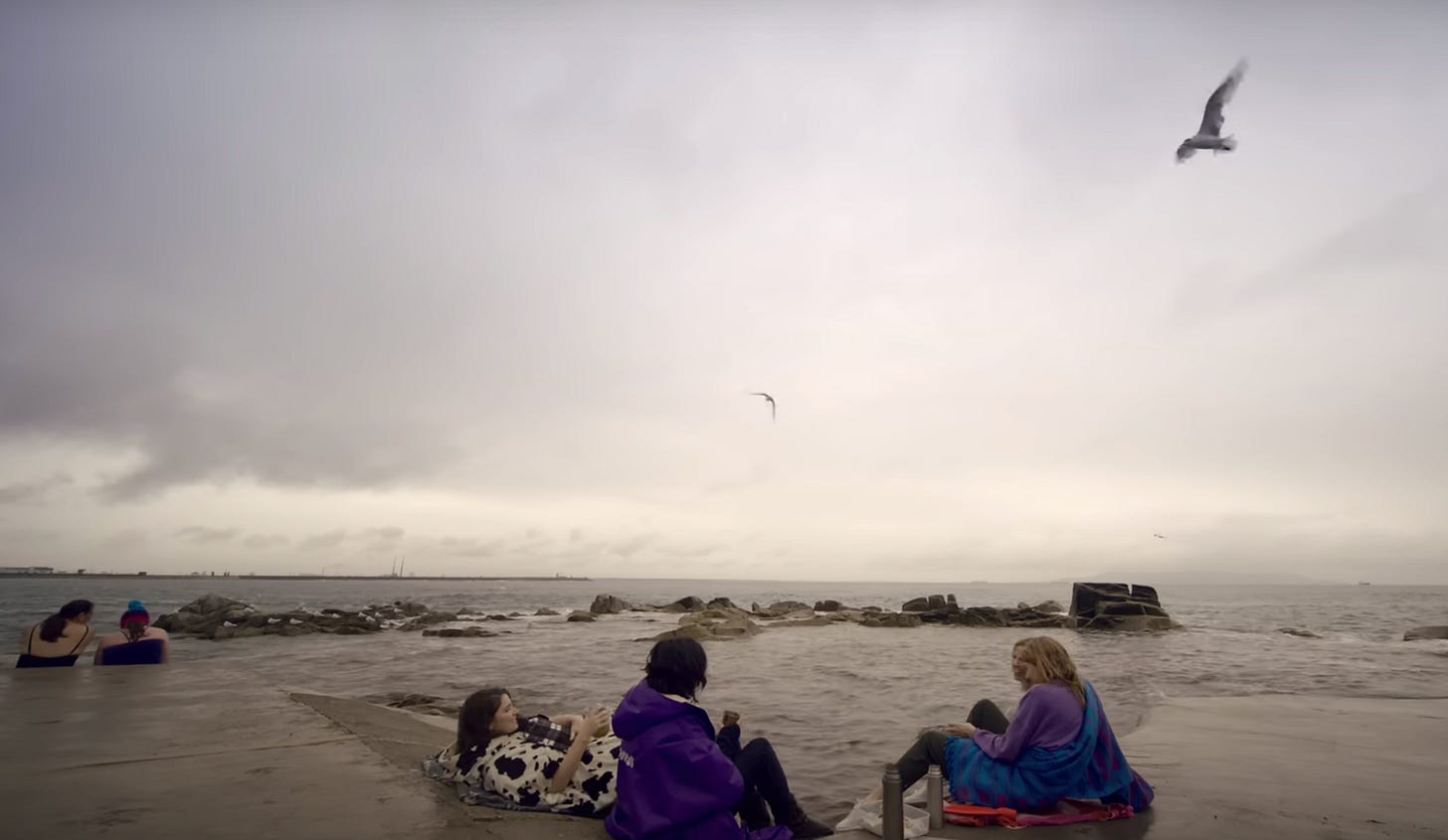
I loved the show almost as much as I love your commentary on it. 💕
❤️❤️❤️